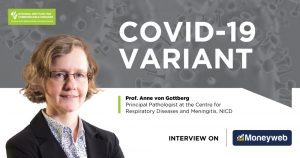South Africa usually experiences an uptick in malaria cases after the Easter holidays, associated with increased travel to malaria-endemic regions within South Africa and the rest of Africa. Although effective control interventions have reduced the malaria burden in South Africa, the risk of malaria still exists in the endemic regions of KwaZulu-Natal, Mpumalanga, and Limpopo provinces. Additionally, several African countries, including our neighbours, Botswana and Namibia, are experiencing malaria outbreaks, with malaria cases being reported in areas not generally associated with ongoing malaria transmission. While Mozambique has not reported any outbreaks, certain areas are regarded as high-risk.
How to prevent contracting malaria?
All individuals travelling to malaria-endemic areas should take the appropriate pharmaceutical and/or non-pharmaceutical precautions.
Antimalarial prophylaxis should be considered, particularly if travelling to high-risk areas. Doxycycline is now available in the public sector without a prescription at no cost to travellers. Both doxycycline and atovaquone-proguanil can be procured without a prescription from pharmacies and private sector travel clinics.
Every effort should be made to reduce contact with mosquitoes by limiting outdoor activity after dark, covering up bare skin (particularly feet and ankles), using mosquito repellents containing at least 10% DEET, ensuring window screens are closed, and using bed nets, fans, or air-conditioning, if available. While these precautions will reduce the chance of acquiring malaria, the risk is never completely removed.
Malaria symptoms
Malaria symptoms are very similar to “flu” symptoms and include headache, fever, chills, fatigue, muscle and joint pain. All travellers returning from malaria-endemic areas, including very low-risk areas, should immediately report a flu-like illness (headache, fever, chills, fatigue, muscle and joint pain) to the nearest healthcare facility and request a malaria test. Particular care should be taken with young children, as their symptoms are very nonspecific (fever, loss of appetite, vomiting). Malaria rapidly progresses to severe illness, often with severe consequences; therefore, early diagnosis and treatment are critical.
A malaria risk map, Frequently Asked Questions, and further information on prevention are available on the NICD website. Please click here for more details.





